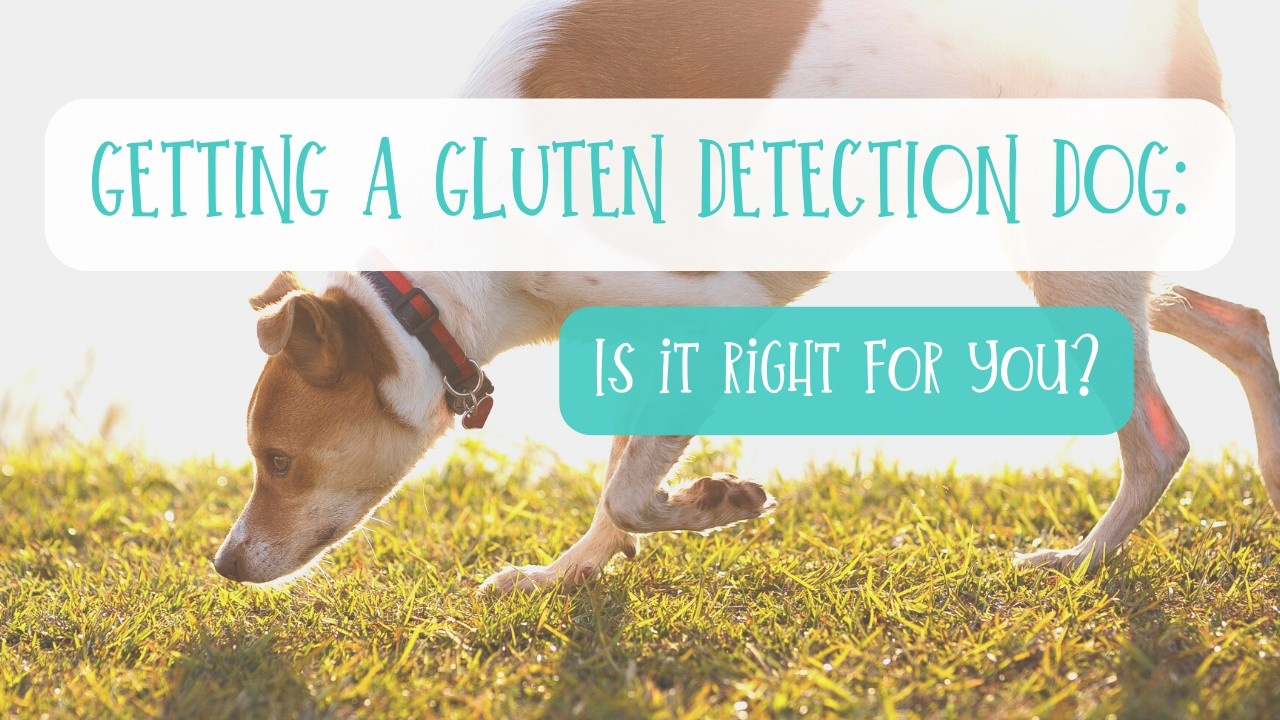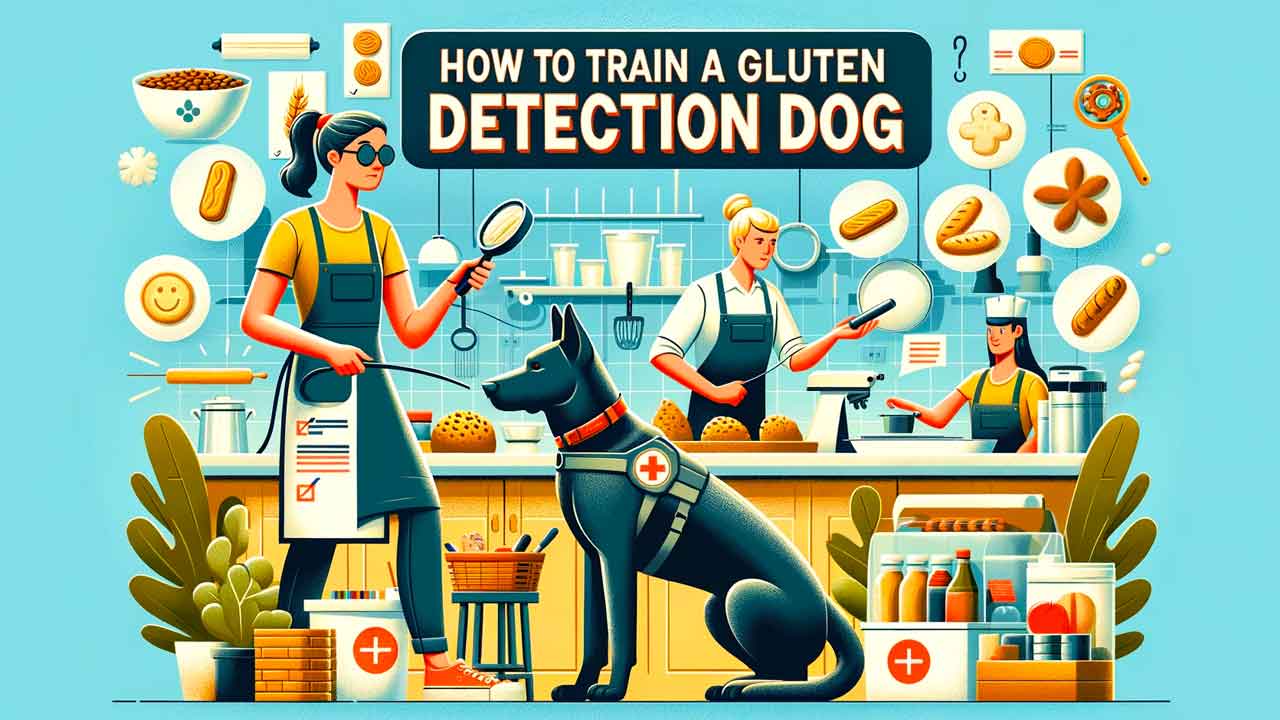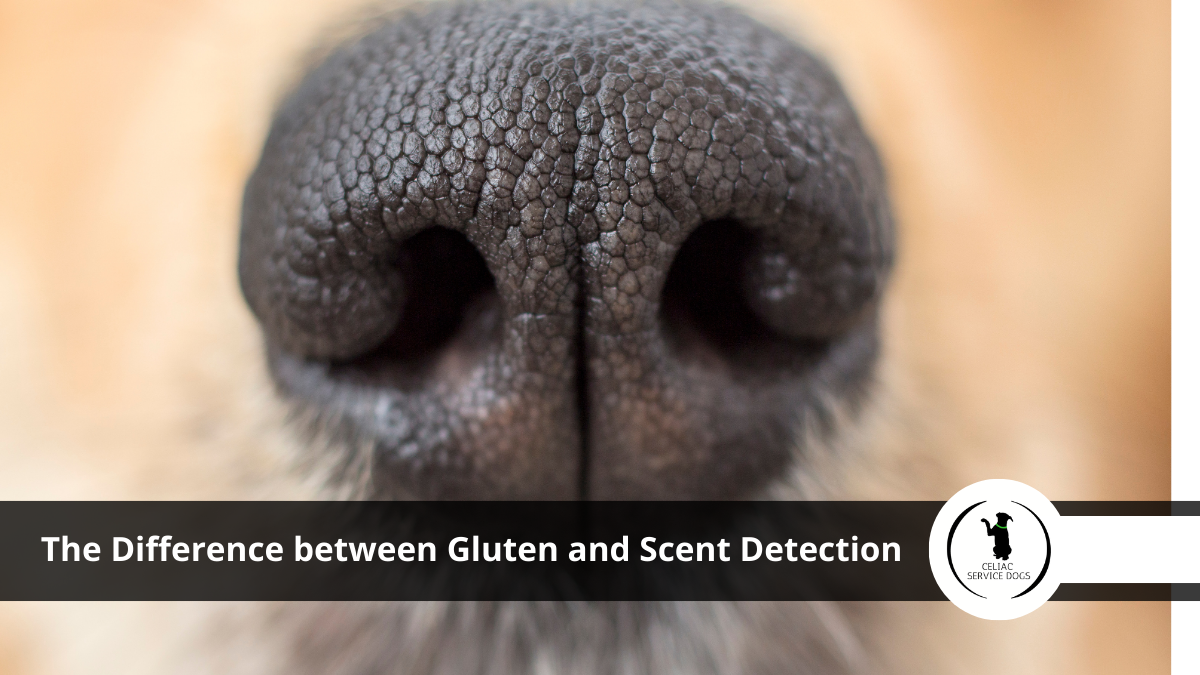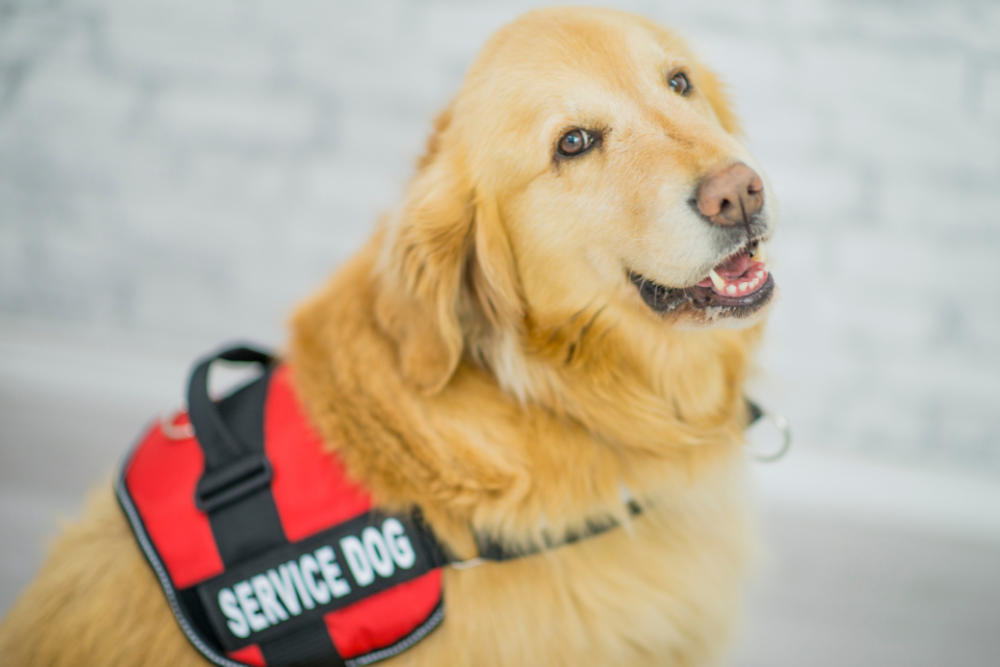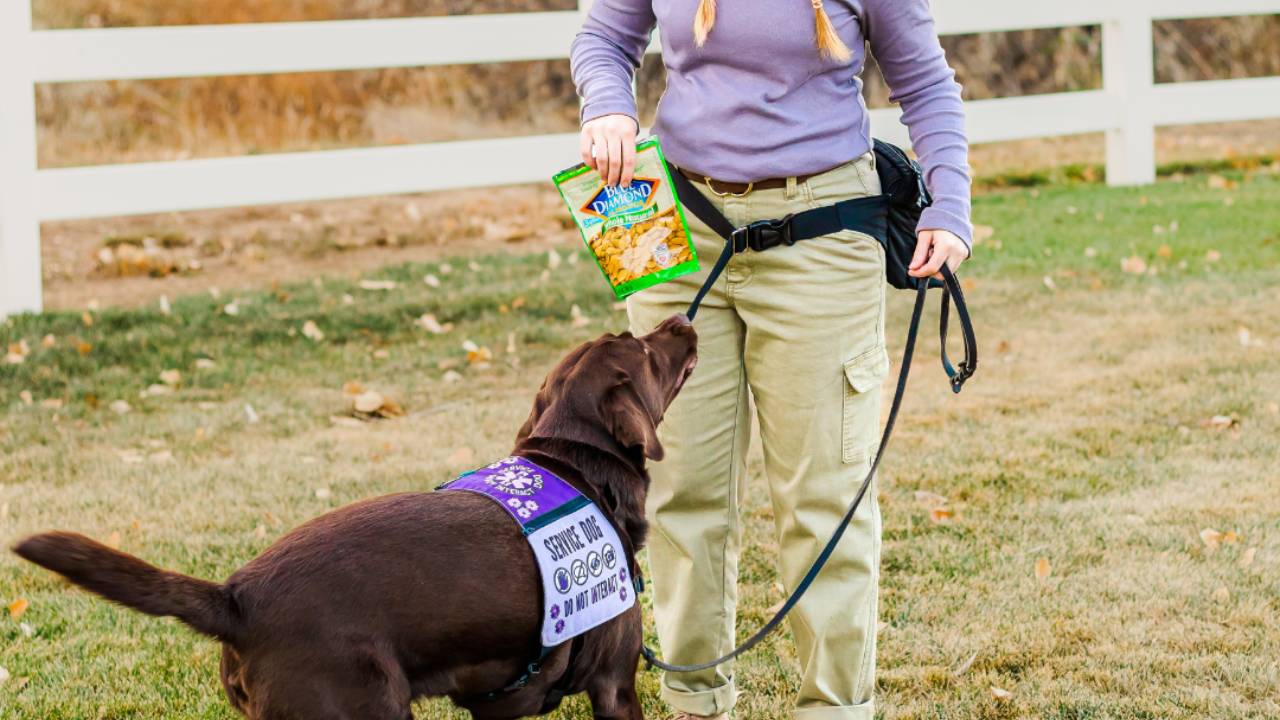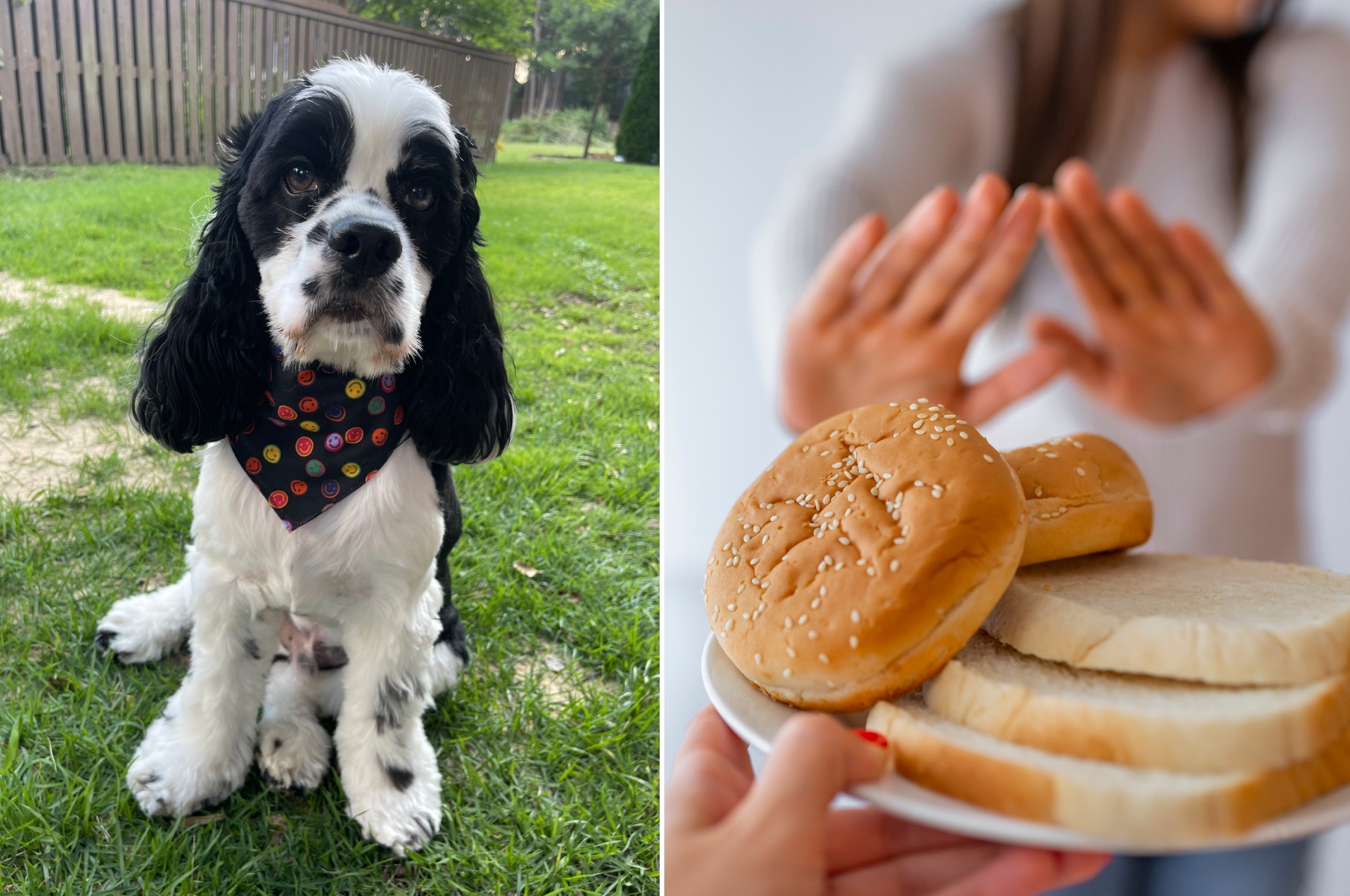How To Get A Gluten Detection Dog

Imagine a world where every restaurant meal, every social gathering, every seemingly innocent bite holds a potential threat. For individuals with celiac disease or severe gluten sensitivities, this is not a hypothetical; it’s a daily reality. But picture this: a furry companion, nose twitching, diligently sniffing out danger, offering a sense of safety and freedom previously unimaginable. This is the promise of a gluten detection dog.
Gluten detection dogs are specially trained to identify even trace amounts of gluten, providing invaluable assistance to individuals with celiac disease and other gluten-related disorders. These canine heroes offer a unique solution, increasing safety and independence. This article explores the process of acquiring a gluten detection dog, shedding light on training programs, costs, and the life-changing impact these dogs have on their handlers.
The Rise of Gluten Detection Dogs
The concept of using dogs to detect gluten is relatively recent, gaining traction as awareness of celiac disease and gluten sensitivities has grown. While guide dogs and service dogs have a long history, the specific training for gluten detection requires a specialized approach.
The need for these dogs stems from the pervasive nature of gluten in the modern food supply. Cross-contamination is a constant concern, even in gluten-free labeled products. The Celiac Disease Foundation estimates that approximately 1 in 100 people worldwide are affected by celiac disease, and many others experience non-celiac gluten sensitivity.
The Training Process: A Nose for Detail
Training a gluten detection dog is a rigorous process, typically beginning with dogs that possess a natural aptitude for scent work. Labrador Retrievers, Golden Retrievers, and other breeds known for their intelligence and eagerness to please are often chosen for this purpose.
The training process usually involves several stages. First, the dog learns to associate the scent of gluten with a positive reward, like a treat or praise. They are then introduced to increasingly complex scenarios, identifying gluten in various environments, such as kitchens, restaurants, and grocery stores.
The training is based on positive reinforcement techniques. Trainers use precise methods to ensure the dogs can differentiate between gluten and other similar scents. This minimizes false alerts, which is vital for maintaining the handler’s trust and confidence.
Where to Find a Gluten Detection Dog
Several organizations across the United States and other countries specialize in training and placing gluten detection dogs. These organizations typically have a thorough application process to ensure a good match between the dog and the handler.
SDI Academy is one such organization that dedicates its resources to providing assistance dogs for people with disabilities. Their programs encompass a range of service dogs, including those specializing in gluten detection. Gluten Free Dogs is another group focused specifically on training dogs to detect gluten.
The application process often involves submitting medical documentation, completing questionnaires about lifestyle and needs, and participating in interviews. Some organizations may also require a home visit to assess the environment where the dog will live.
The Cost of a Gluten Detection Dog
Acquiring a gluten detection dog can be a significant financial investment. The cost typically ranges from $15,000 to $30,000 or more, depending on the organization and the level of training.
This cost covers the dog's acquisition, training, veterinary care, and ongoing support for the handler. Some organizations offer financial assistance or fundraising opportunities to help individuals cover the expenses.
It is crucial to inquire about all costs upfront, including application fees, training fees, and any ongoing expenses associated with maintaining the dog's certification. Despite the significant cost, many individuals find that the peace of mind and increased independence a gluten detection dog provides are invaluable.
The Handler's Role: A Partnership Built on Trust
The relationship between a handler and a gluten detection dog is a partnership built on trust and mutual understanding. The handler plays a vital role in maintaining the dog's training and ensuring their effectiveness.
Handlers must learn to interpret the dog's alerts accurately and take appropriate action based on the information provided. Regular training sessions and ongoing communication with the training organization are essential for maintaining the dog's skills and addressing any challenges that may arise.
Moreover, handlers are responsible for meeting the dog's needs, including providing proper nutrition, exercise, and veterinary care. The dog's well-being is paramount, and handlers must be committed to providing a loving and supportive environment.
The Impact: More Than Just a Dog
The impact of a gluten detection dog extends far beyond simply avoiding gluten. These dogs provide their handlers with a newfound sense of confidence and independence.
Individuals who previously felt limited by their dietary restrictions can now navigate social situations and dining experiences with greater ease. The dogs offer a sense of security, allowing handlers to relax and enjoy life without the constant fear of accidental gluten exposure.
Beyond the practical benefits, gluten detection dogs also provide emotional support and companionship. The bond between a handler and their dog is often profound, offering a source of comfort and unconditional love. This bond makes a significant difference in the lives of those living with celiac disease and gluten sensitivities.
Maintaining Certification and Continued Training
To ensure continued effectiveness, gluten detection dogs typically undergo periodic certification and ongoing training. Certification requirements vary depending on the organization.
These assessments typically involve testing the dog's ability to accurately detect gluten in various scenarios. Recertification is important to maintain the integrity of the dog's detection skills.
Regular reinforcement of training commands and exposure to real-world situations is key for ensuring the dog remains sharp and reliable. Consistency and ongoing training keeps the dog ready for anything.
Navigating Public Spaces with a Service Dog
Understanding the legal rights and responsibilities associated with service dogs is essential for handlers. In the United States, the Americans with Disabilities Act (ADA) protects the rights of individuals with disabilities to be accompanied by their service dogs in public places.
Under the ADA, businesses and organizations that serve the public must allow service dogs, even if they have a "no pets" policy. However, service dogs must be properly trained and under the handler's control.
Handlers should be prepared to answer questions about their dog's training and purpose, and to provide documentation if requested. Familiarizing oneself with local and state laws regarding service dogs is also important.
Looking Ahead: The Future of Gluten Detection Dogs
As awareness of celiac disease and gluten sensitivities continues to grow, the demand for gluten detection dogs is likely to increase. Ongoing research and advancements in training techniques are also improving the effectiveness and reliability of these canine companions.
The future may see the development of more sophisticated scent detection technology, potentially enhancing the capabilities of gluten detection dogs. There is also the possibility of expanding the use of these dogs into other areas, such as food manufacturing and quality control.
Ultimately, the goal is to provide individuals with celiac disease and gluten sensitivities with the tools they need to live healthy, fulfilling lives, free from the constant fear of accidental gluten exposure. Gluten detection dogs are helping make that goal a reality.
Obtaining a gluten detection dog is a transformative journey. It requires commitment, financial resources, and a willingness to learn and adapt. But for those who choose this path, the rewards are immeasurable: increased safety, independence, and a profound bond with a loyal companion. The journey to acquire such a dog isn't a sprint, but a marathon. It involves patience, persistence, and a deep understanding of the unique relationship between handler and canine. It is about embracing a new way of life, one where the ever-present threat of gluten exposure is diminished by the unwavering loyalty and extraordinary scenting abilities of a four-legged guardian.
